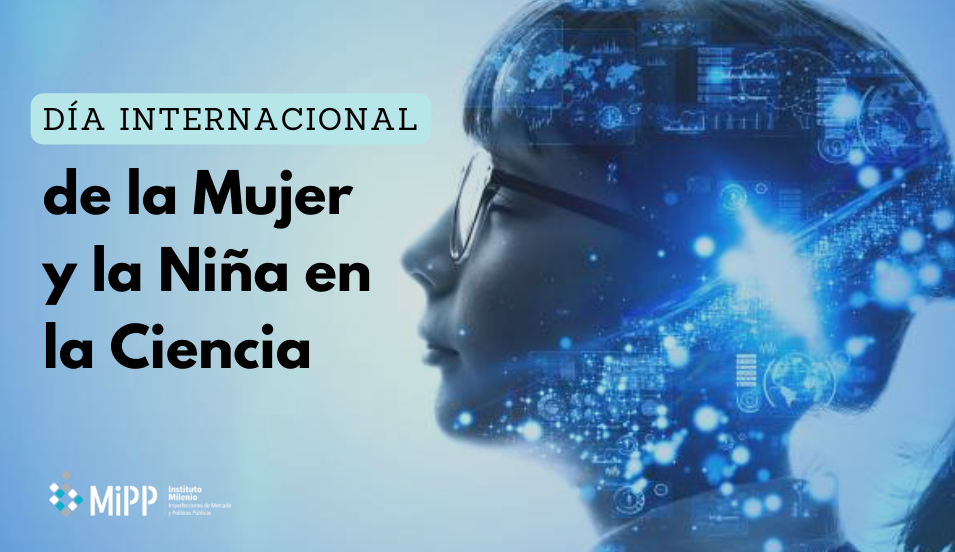
MIPP Millennium Institute.- Numerous topics have been discussed on gender equality and the empowerment of women and girls as agents of change for progress towards a more developed society. Nevertheless, science continues to be a field in which women are faced with obstacles impeding their full development. This February 11 marks the International Day of Women and Girls in Science, which commemorates the fundamental role they play in the science and technology communities, and calls for a strengthening of their participation.
In Chile, only 34% of those who develop research are women, from which, they hold leading roles in only 16% of the scientific-technological centers of excellence, according to data from the National Policy for Gender Equality in Science, Technology, Knowledge, and Innovation 2021. This document also reveals that, during 2020, only 28% of the students enrolled in engineering and science degrees were women.
“Although much progress has been made, there are still important prejudices against women, mainly related to working in a predominantly male environment with a recent presence of women. It’s that we have to make more of an effort to validate ourselves,” says Sofía Correa, a researcher at the MIPP Millennium Institute, Ph.D. in Economics graduate from the New York University, and Assistant Professor of Economics at the Department of Industrial Engineering, University of Chile.
“There is a certain conviction that today everything is easier for women, and especially for those who are just entering the market: everyone wants to hire us, everyone needs us in their organizations, projects, etc. So, inevitably, we have to show that we’re not where we are ‘just’ because we’re women, and that’s added pressure that we shouldn’t have to deal with,” she adds.

Extensive evidence shows that gender bias and discrimination condition people’s opportunities, affecting career paths and perpetuating gaps between men and women. This is reflected in the world of research, development and innovation, where the low participation and female leadership in relevant positions in academic institutions, or the difficulty in obtaining funding for research, among many other aspects, expose a pronounced inequality .
The researcher Sofía Correa expresses that being a woman in science currently requires being constantly alert to the challenges that are appearing in terms of diversity and inclusion. “In a mostly male environment, such as the scientific one, there is not much room for the feminine perspective. More masculine personalities and ways of working are encouraged, and this tends to downplay other qualities that are equally relevant to research development,” she says.
The problem, she mentions, is that this tends to further discourage students who don’t find the scientific environment attractive. For this reason, “allowing and promoting a more feminine way of working can attract more diversity to work teams, it can allow us to see problems from new points of view and give rise to greater creativity that could benefit us,” says Correa.

Andrea Canales, a researcher at the MIPP Millennium Institute, and academic at the O’Higgins University, agrees on this aspect, and stresses that women scientists must continue to pave the way so that more and more people dare to venture into these areas. “An important task is to make ourselves visible to the new generations so that girls and boys see that in science there is a world with space for both, so that girls can also dream of being scientists,” she says.
In order to have a robust research system that encourages critical analysis and generates solutions that improve the welfare of the entire society, we cannot exclude half of our population from participating in it. Therefore, it is necessary to promote curiosity, scientific exploration and reflective ability in school education from childhood, in order to attract girls and boys to science. In this way, recognize that both have the same potential for learning and development, regardless of their biological and social characteristics.
Going forward, “policies are required that encourage and facilitate the participation of women at all levels, that allow women who are already inside to develop their maximum potential and not be forced to drop out along the way,” concludes Canales.
MIPP Chile 2025